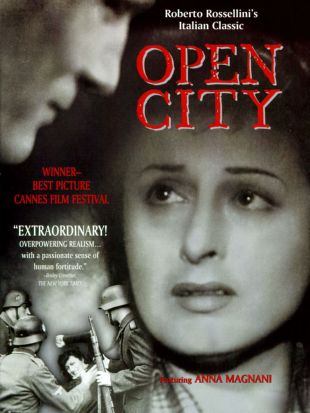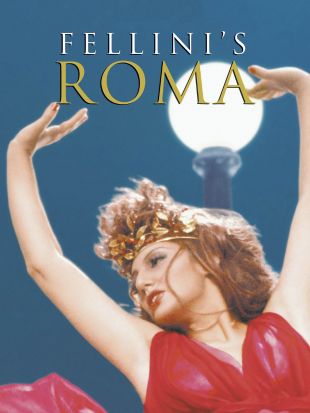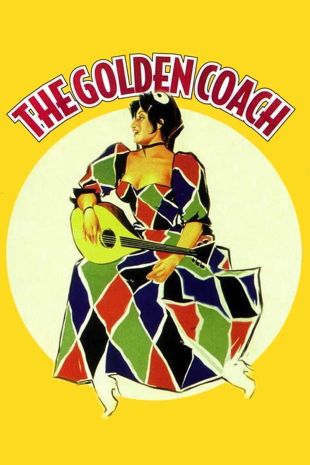Of the many foreign actresses to earn international success, most -- Brigitte Bardot, Sophia Loren, Gina Lollabrigida, to name a few -- were bombshells, sex symbols in the classic mold. Anna Magnani was the exception; earthy and unkempt, she was neither glamorous nor statuesque, yet radiated such fierce intelligence and sensuality that she became a major star, and along with Guilietta Masina she reigned as the most celebrated Italian actress of the postwar era. Born March 7, 1908, in Alexandria, Egypt, Magnani was raised by her grandmother in the slums of Rome. She studied acting at Santa Cecilia's Corso Eleanora Duse but began her performing career as a nightclub singer before moving on to variety theaters and stock. While singing in San Remo, she married filmmaker Goffredo Alessandri in 1933 and through him Magnani met director Nunzio Malasomma, who cast her in a lead role in his 1934 effort La Cieca di Sorrento. Under Alessandri, she next appeared in 1936's Cavalleria, followed in 1938 by Mario Soldati's Tarakanova.
Magnani also continued pursuing a theatrical career, starring in productions of The Petrified Forest and Anna Christie. Despite her stage success, however, she struggled in film, landing only small roles in pictures including 1940's Una Lampada alla Finestra and 1941's Finalmente Soli. A lead role in Vittorio de Sica's Teresa Venerdi earned good notices, but Magnani then returned to supporting turns, appearing opposite Roberto Villa in 1942's La Fortuna Viene de Cielo. After giving birth to a son by actor Massimo Serato, Magnani was absent for performing for over a year. Upon returning to work in 1943, her options were extremely limited -- the escalation of the war had resulted in a ban on all foreign plays -- so she appeared in a revue, Cantachiaro No. 2. She also appeared with Aldo Fabrizi in a pair of films, the Mario Mattoli thriller L'Ultima Carrozzella and the comedy Campo di Fiori, and in 1944 she accepted a small role in Il Fiore sotto gli Occhi.
While the Italian film industry was already in a state of chaos throughout the course of World War II, the German occupation almost crippled it for good. Under extraordinarily difficult conditions, director Roberto Rossellini began work on Roma, Città Aperta, filming clandestinely even as the Nazis were exiting the city. As a pregnant widow destined for tragedy at the hands of the Germans, Magnani delivered an extraordinarily powerful performance which helped spark the picture to international success, spearheading the Italian neorealist movement. Once regarded primarily as a comedienne, she now emerged across the world as a powerful dramatic actress, and her deliberate lack of movie-star glamour was much acclaimed by critics. Magnani then starred in Gennaro Righelli's comedy Abbasso la Miseria, followed by 1946's Davanti a lui Tremava Tutta Roma. For Alberto Lattuada, she starred in another contemporary drama, Il Bandito, followed by Righelli's sequel Abbasso la Ricchezza.
Because little of Magnani's work apart from Roma, Città Aperta was released internationally, most audiences did not see her again prior to Luigi Zampa's drama L'Onerevole Angelina, which she also co-wrote. Her performance won Best Actress honors at the Venice Film Festival and earned raves from critics across the globe. The comedy Molti Sogni per le Strade was also a worldwide success. Rossellini's bleak, controversial Amore followed in 1948; a two-part film, it was notorious for Il Miracolo, which cast Magnani as a naive peasant raped by a drifter she believes to be Jesus. Her relationship with Rossellini ended acrimoniously when he became involved with Ingrid Bergman, and in response to their film Stromboli, Magnani mounted a cinematic response in the form of Vulcano. In 1951, she teamed with Luchino Visconti for Bellissima, and in 1953 starred The Golden Coach for Jean Renoir, who declared her "probably the greatest actress I have ever worked with."
While Tennessee Williams wrote his play The Rose Tattoo with Magnani in mind, she was afraid to perform the role on Broadway. She did, however, agree to star in Paramount's 1955 film adaptation, and her work won an Academy Award for Best Actress. After briefly returning to Italy to star in 1956's Suor Letizia, she went back to Hollywood to star in George Cukor's Wild Is the Wind. It was not successful, nor was Renato Castellani's Nella Città l'Inferno, which starred Guilietta Masina. With Marlon Brando, Magnani appeared in another Williams adaptation, 1960's The Fugitive Kind. After starring in Mario Monicelli's Risate di Gioia, she headlined 1962's Mamma Roma, just the second feature from a then-unknown Pier Paolo Pasolini. It was the last of Magnani's films distributed outside in the English-language market for some time, and she next appeared in Claude Autant-Lara's 1963 effort Le Magot de Josefa, followed a year later by Volles Herz und Leere Taschen.
Upon appearing in the 1966 sketch film Made in Italy, Magnani resumed her stage career by starring in Franco Zefferelli's La Lupa. After a long absence, she returned to Hollywood in 1969 to co-star in The Secret of Santa Vittoria, but did not again go back to the United States. In 1970, she began work on an Italian television series, which was later re-edited for theatrical release under the title Correva L'Anno Di Grazia 1870. A small roll in 1972's Fellini's Roma was Magnani's final screen performance -- she died September 26, 1973, at the age of 65. Her passing was widely mourned throughout Italy, and her funeral in Rome attracted an enormous crowd; she was buried in the family mausoleum of Roberto Rossellini, with whom she'd patched up her disagreements some years before.


